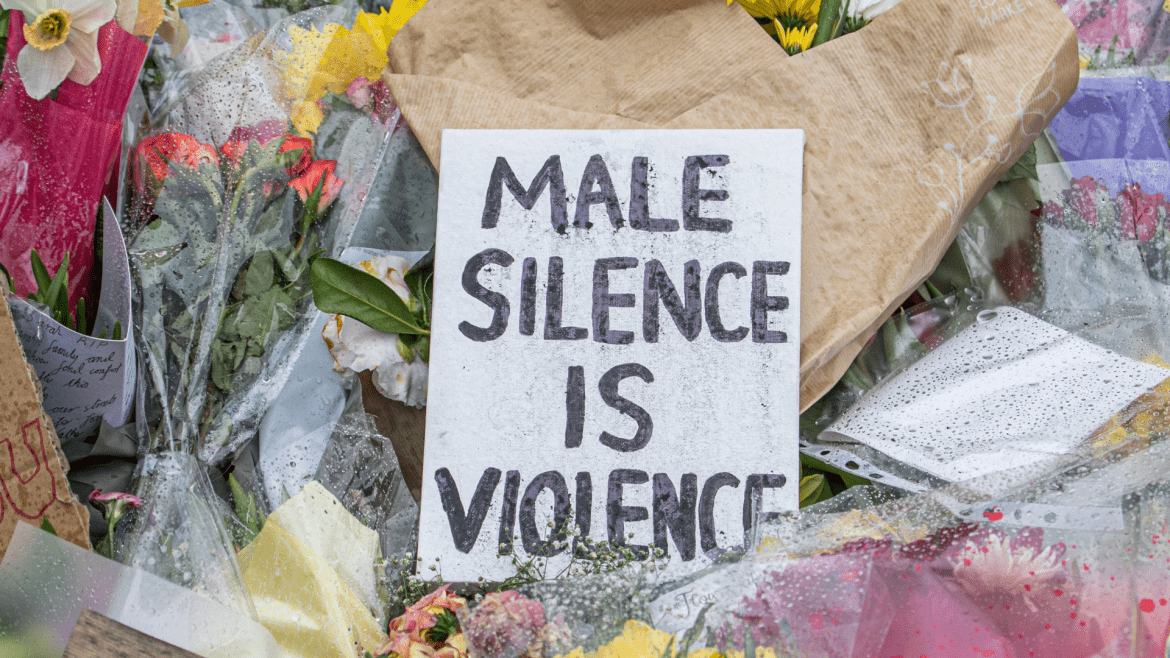As the popular podcast The Guilty Feminist always starts: I’m a feminist, but … International Women’s Day (IWD) infuriates me.
Hear me out: I appreciate that celebrating women’s achievements important.
Indeed, there is a lot to be grateful for. Countries like Spain and Colombia have loosened anti-abortion laws, Rwanda, Indonesia and the Caribbean have reduced the gender pay gap and the US Supreme Court confirmed their first Black female justice.
However, not one country has achieved gender equality, nor even closed the gender pay gap. With the United Nations estimating it could take 257 years to close the wage disparity between men and women, the idea of IWD is ridiculous.
In recent years it has become an empty symbol for women’s rights. St Valentine’s Day was traditionally meant to celebrate a Christian martyr but has turned into a capitalist and consumer-driven day promoting (often heterosexual) notions of romance. Likewise, IWD has become something to which companies and industries pay lip-service to score easy consumer points.
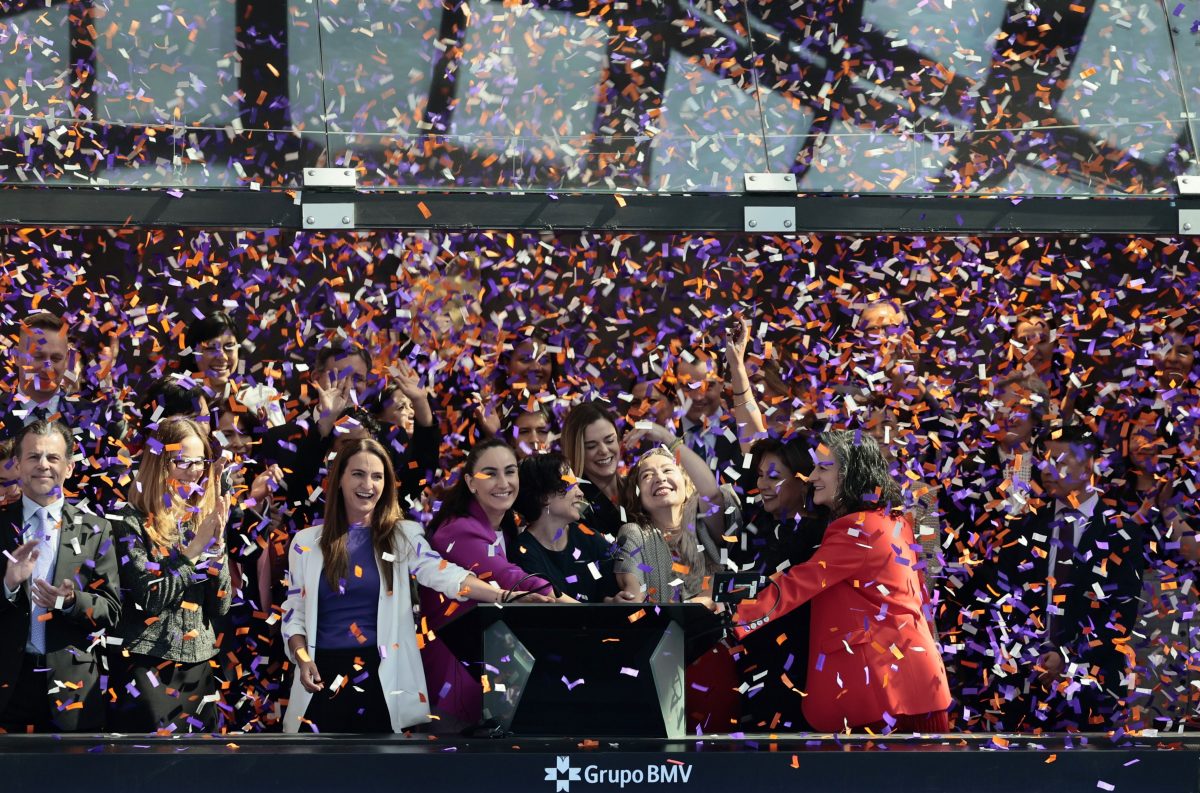
We as individuals are guilty of this tokenism, too. Social media is sprinkled with vacuous tributes to women in some form, with women posting selfies captioned #internationalwomensday or a motivational (mis)quote.
It’s all just posturing. I understand it’s about raising awareness and lobbying for equality, but who can think of an occasion when IWD actually changed anything?
I’m unsure a woman working in sweatshop, making t-shirts smeared with “Empowered empower”, feels soothed that it’s IWD.
A brief history of IWD
The idea grew out of the United States’ Socialist Party announcing a National Women’s Day in 1909. It originally commemorated New York’s 1908 garment strike, when 15,000 women took to the streets to protest working conditions.
The following year, women’s rights activist Clara Zetkin called for an international women’s day to give women a stronger voice for their demands for equal rights. The first IWD was celebrated in 1911 by Austria, Denmark, Germany and Switzerland.
A sign of progress or stagnation?
It is frustrating that gender equality is still viewed as a “woman’s issue”. IPSOS found in a 2022 study that one out of three men believe feminism does ‘more harm than good’. Additionally, the campaign group Hope Not Hate revealed a staggering 50% of men believe feminism has ‘gone too far’. Yet, there is considerable research that gender equity benefits both economic growth and sustainability.
Women have suffered disproportionately during the pandemic and this has exacerbated our progress for equality. Despite most of the world being in lockdown in their homes for months at a time, women still performed 75% of unpaid domestic work.
My blood boiled this week as Alistair Campbell, ex-communications advisor for Tony Blair’s government, joked on The Rest is Politics podcast that he has only cooked one meal in his life. His co-host, Rory Stewart, seemed to light-heartedly admonish him for being hopeless.
I appreciate that #notallmen avoid housework like an open box of tampons, but how can we claim to be a ‘progressive’ country for gender equality when women are still saddled with the burden of domestic labour and men are cajoled for being a bit ‘useless’ at house work (on which women spend up to four hours and 25 minutes a day)?
The global picture on IWD
All over the world, women and girls are under-represented in decision-making roles, including companies, local governments and parliaments. Data from 136 countries in 2022, supplied by UN Women, found that women made up only 34% (three million) of elected members in local government bodies. Just two countries hit 50% representation in local authoritative bodies.
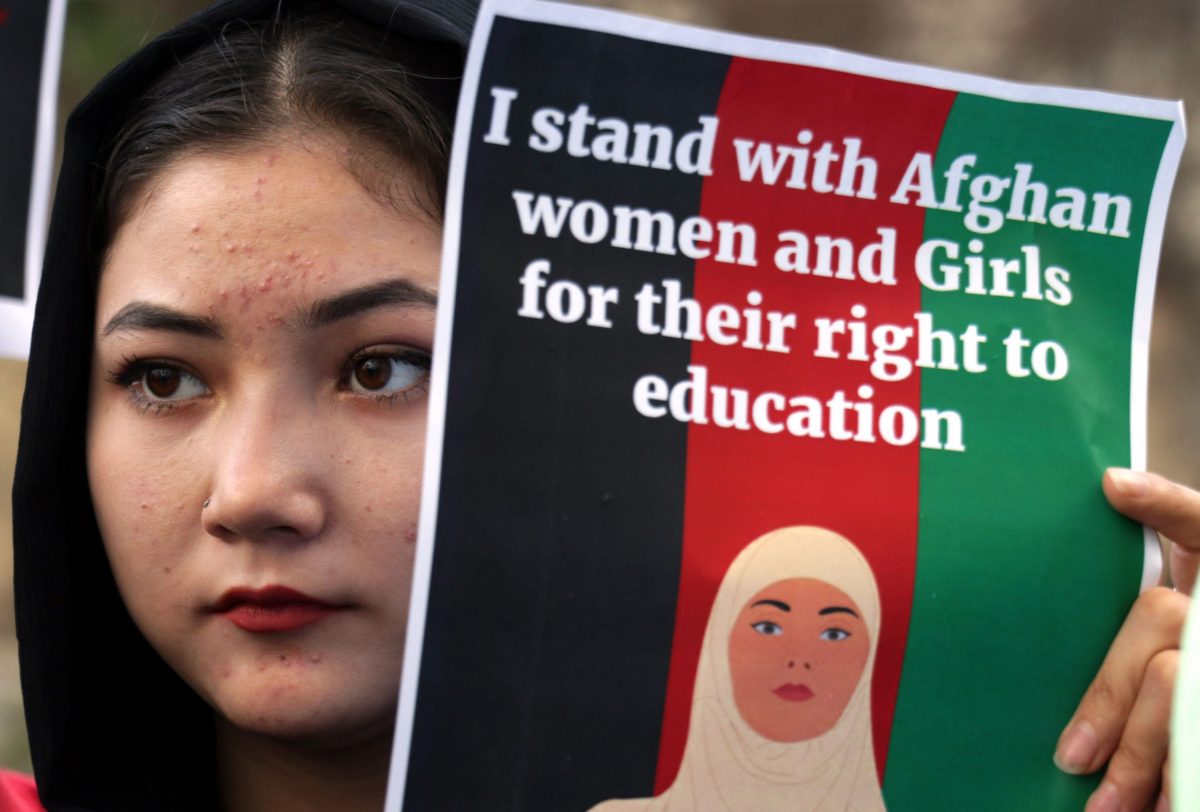
Last year alone, we witnessed serious setbacks to women’s rights across the world. In December 2022 the Taliban banned women from higher education in Afghanistan, affecting over 100,000 women.
According to a 2020 UNESCO study of individuals aged 15 and over, 17% of women in the world are illiterate, compared to 10% of men. Additionally, 52% of women don’t have access to the internet, compared with the 58% of men that do.
Women’s bodies are continually being politicised. In Iran, 22-year-old Mahsa Amini was brutally murdered in detention by Police for breaking strict hijab laws. Women across Iran exploded in protest by shaving their heads and burning their hijabs in response – sparking further aggression from police and state forces.
In June 2022, the landmark case of Roe VS Wade from 1973 was overturned as the U.S. Supreme Court ruled that women had no constitutional right to an abortion. Women are having to travel across anti-abortion states, like Missouri, to neighbouring ‘sanctuaries’, like Illinois, to undergo the procedure.
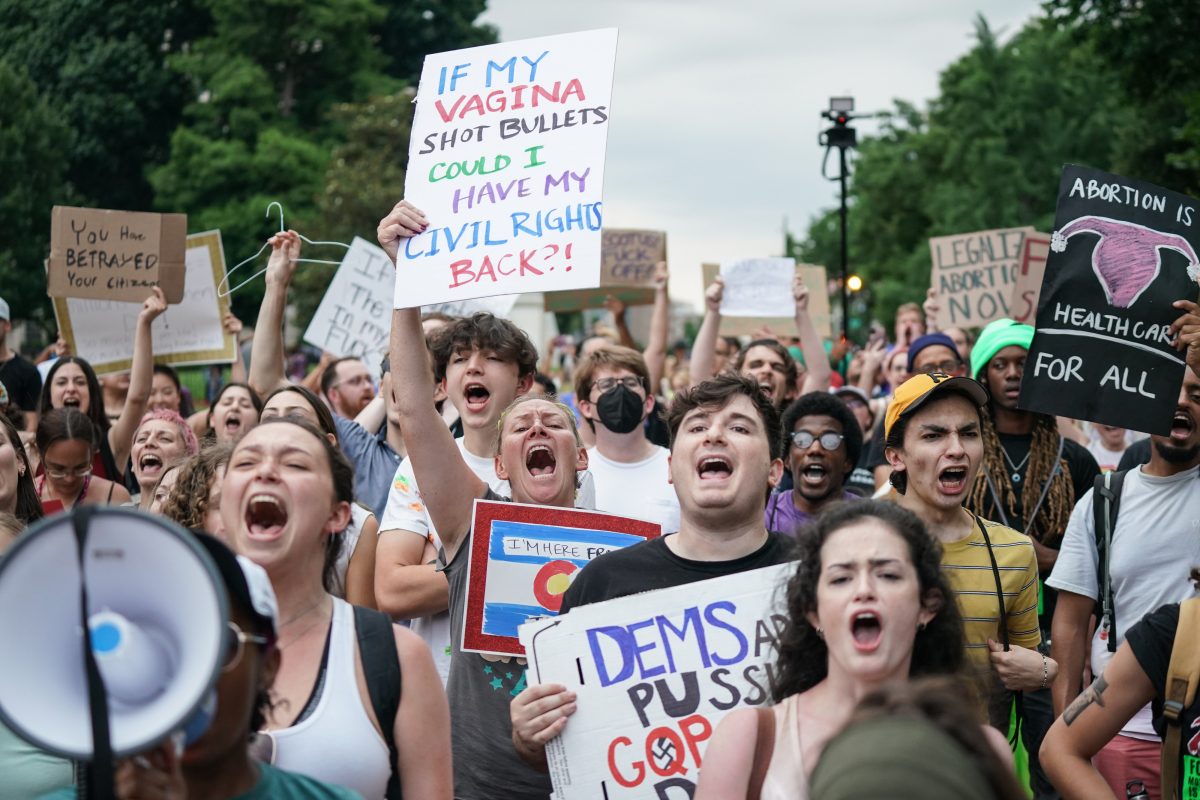
Globally, almost one in three women have experienced sexual violence according to 2021 data by the WHO. The figures are likely to be higher as a result of different definitions of rape and consent according to a country’s laws. In the UK, The Office for National Statistics reported that one in four women were raped or sexually assaulted as an adult, with the highest figure of rapes reported to the police at 70,330 in March 2022. Again, this is a gross underrepresentation, as charity Rape Crisis estimate that five out of six rape survivors do not report attacks to police.
Ask any woman you know and she will be able to list off times where either she or someone she knows has been harassed.
Many women in the UK no longer feel protected by the police, the arms of the State. The murder of Sarah Everard by serving police officer Wayne Couzens in 2021, the serial rapist and abuser David Carrick who used his police authority to threaten women, 800 Met Police officers under investigation for alleged sexual assault, the growing number of police officers being suspended over racist and misogynistic WhatsApp messages, to name a few.
It seems incredulous that the culture inside the police shift the blame as being “a few bad apples”.
Hungry for change
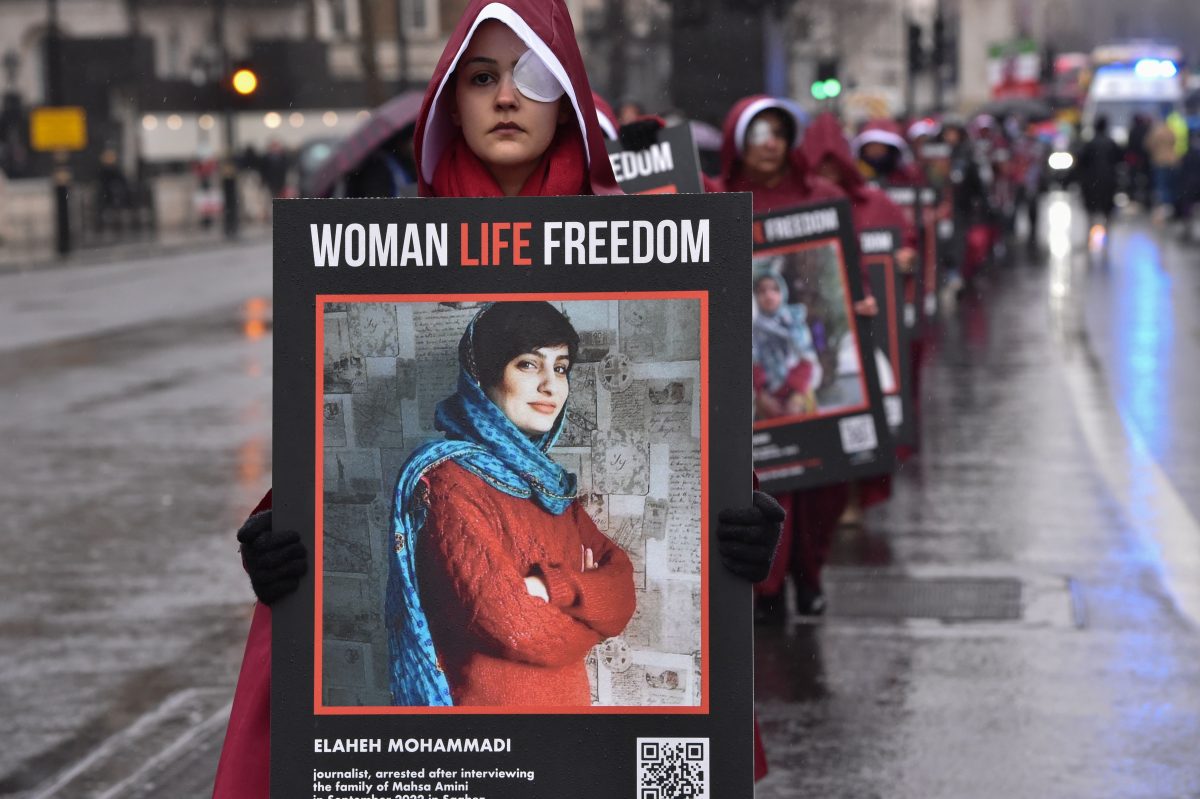
This IWD, I am not championing women’s rights. I am exhausted at second guessing myself. I am tired of trying to work out acceptable boundaries that do not deny me opportunities but also don’t infringe my comfort.
Most of all, I am furious. There is so much injustice and pain, yet IWD has been exploited by opportunistic capitalist industries. We are harassed with marketing ploys to celebrate the day. Companies bombard us with advertising in trying to promote their brand as a superficial pretence for gender equality. And women are supposed to be grateful?
I want unadulterated equality, not the crumbs of half-hearted “progress”.

